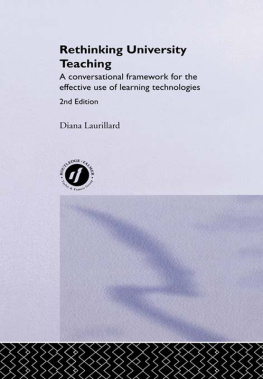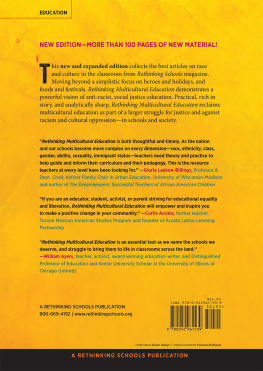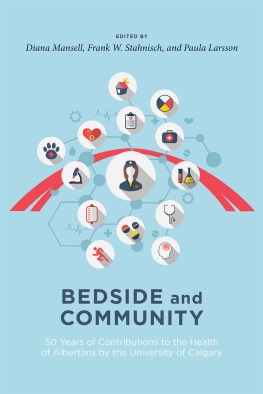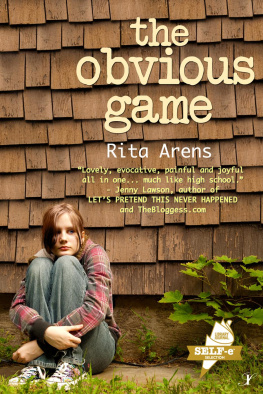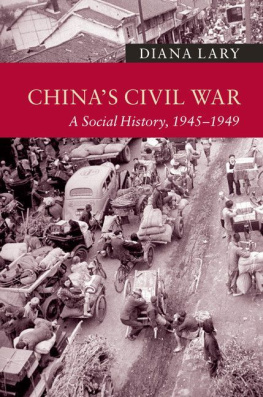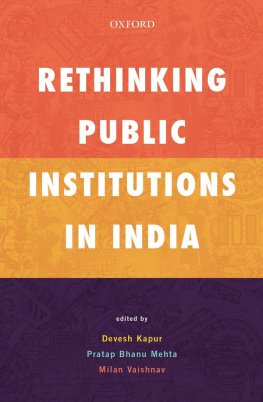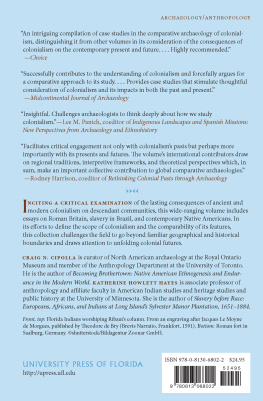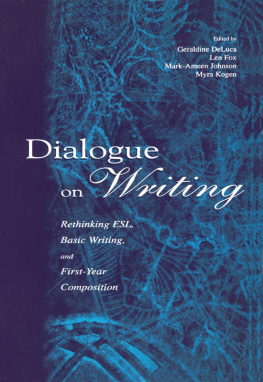Laurillard Diana - Rethinking University Teaching
Here you can read online Laurillard Diana - Rethinking University Teaching full text of the book (entire story) in english for free. Download pdf and epub, get meaning, cover and reviews about this ebook. publisher: Taylor & Francis Group, genre: Religion. Description of the work, (preface) as well as reviews are available. Best literature library LitArk.com created for fans of good reading and offers a wide selection of genres:
Romance novel
Science fiction
Adventure
Detective
Science
History
Home and family
Prose
Art
Politics
Computer
Non-fiction
Religion
Business
Children
Humor
Choose a favorite category and find really read worthwhile books. Enjoy immersion in the world of imagination, feel the emotions of the characters or learn something new for yourself, make an fascinating discovery.
- Book:Rethinking University Teaching
- Author:
- Publisher:Taylor & Francis Group
- Genre:
- Rating:4 / 5
- Favourites:Add to favourites
- Your mark:
- 80
- 1
- 2
- 3
- 4
- 5
Rethinking University Teaching: summary, description and annotation
We offer to read an annotation, description, summary or preface (depends on what the author of the book "Rethinking University Teaching" wrote himself). If you haven't found the necessary information about the book — write in the comments, we will try to find it.
Rethinking University Teaching — read online for free the complete book (whole text) full work
Below is the text of the book, divided by pages. System saving the place of the last page read, allows you to conveniently read the book "Rethinking University Teaching" online for free, without having to search again every time where you left off. Put a bookmark, and you can go to the page where you finished reading at any time.
Font size:
Interval:
Bookmark:
2nd Edition
There have been extensive changes in the technologies available for learning over the last decade. These technologies have the potential to improve radically the way students engage with knowledge and negotiate ideas. However, this book argues that the promises made for e-learning will only be realised if we begin with an understanding of how students learn, and design the use of learning technologies from this standpoint.
This new edition has been updated in view of recent technological advances and provides a sound theoretical basis for designing and using learning technologies in university teaching. The author argues that although the new learning technologies are not individually capable of matching the effectiveness of the one-to-one teacher, together they can support the full range of student learning, both efficiently and effectively.
This book is essential reading for all academics and academic support staff concerned with improving the quality of teaching in Higher Education.
Diana Laurillard is Professor of Educational Technology and Pro-Vice Chancellor for Learning Technologies and Teaching at The Open University.
Rethinking University
Teaching
2nd Edition
A conversational framework for
the effective use of learning
technologies
DianaLaurillard

First published 2002 by RoutledgeFalmer
2 Park Square, Milton Park, Abingdon, Oxon, OX14 4RN
Simultaneously published in the USA and Canada
by RoutledgeFalmer
270 Madison Ave, New York NY 10016
RoutledgeFalmer is an imprint of the Taylor & Francis Group
Transferred to Digital Printing 2005
2002 Diana Laurillard
Typeset in Baskerville by GreenGate Publishing Services,
Tonbridge, Kent
All rights reserved. No part of this book may be reprinted or reproduced
or utilised in any form or by any electronic, mechanical, or other means,
now known or hereafter invented, including photocopying and recording,
or in any information storage or retrieval system, without permission in
writing from the publishers.
British Library Cataloguing in Publication Data
A catalogue record for this book is available from the British Library
Library of Congress Cataloging in Publication Data
A catalog record for this book has been requested
ISBN: 0-415-25679-8 (pb)
ISBN: 0-415-25678-X (hb)
Printed and bound by Antony Rowe Ltd, Eastbourne
To Brian, Amy and Anna, from whom I continue to learn.
| Plate section appears between pages 176 and 177 |
I owe my thanks, as ever, to the staff and students of the Open University. In preparation of this second edition I have drawn, as before, on the work of my colleagues: in the Institute of Educational Technology, the Knowledge Media Institute, the faculties, and the academic support units, who create the learning experiences from which I try to learn. Open University students are an extraordinary community of scholars and practitioners, from all walks of life, who find some place in their full lives not only to study, but also to reflect on their study. Without their willingness to do this, we would not have the means to rethink our teaching.
I am especially grateful to those of my colleagues, at the OU and elsewhere, whose work is represented in the examples used to illustrated the concepts in the book: Professor Ference Marton, Dr Shirley Booth, Professor Paul Ramsden, Professor Tony Bates, Dr Josie Taylor, Dr Rose Luckin, Dr Lydia Plowman, Dr Peter Wright, Dr Joel Greenberg, Dave Meara, Dr Rod Moyse, Nicola Durbridge, Professor Tom Vincent, Dr Jon Rosewell, John Naughton, Dr David Johnson, Karen Shipp, Professor Shirley Alexander, Professor Ray Ison, Professor Robin Mason, Dr Gilly Salmon, Professor Marc Eisenstadt, Dr Simon Buckingham Shum, Dr Peter Scott. We have all been blessed with a Vice Chancellor, Sir John Daniel, who created the environment in which new technologies could be explored and exploited. His benign and visionary leadership in this field has enabled us to keep raising our ambitions for the value that learning technologies can bring to the learning experience.
I must also pay tribute to the late Professor Gordon Pask as the original inspiration for the ideas developed here. His special contribution was to bring a new rigour to educational technology, and for all his technical wizardry, a deep humanity as well.
Finally, I give heartfelt thanks to my Personal Assistant, Alison Nash, whose professional commitment to making my life manageable has made this book possible.
Since the first edition of this book, there have been extensive changes in the technologies available for learning. The Web has become established, interface design has matured, and PC access has become widespread. The demands of technological change have hindered the theory and practice of its application, however. Learning technologies are unfamiliar and complex. Few of the current generation of academics have ever learned through technology, so practice develops slowly, and theory hardly at all. Fortunately, the Conversational Framework introduced in the first edition has proved to be remarkably robust in the face of the new technologies. Its development has benefited from application, and from discussions with many academics, and their critiques have contributed to elaboration of the original theory.
The revisions to the first edition are extensive because the general principles of learning design are communicated most convincingly through the detail of example. And illustrative examples change with the technology. Part I updates the research studies on students learning needs, creating the challenge that new technologies must meet. Part II extends the Conversational Framework to test how well new media contribute to academic learning. Five different types of learning media are illustrated by examples drawn from recent innovative learning materials. Part III revises the design methodology for the course material and its programme context.
As before, this edition finishes with a blueprint for a university infrastructure that is not sidetracked by the uncertain notion of an e-university or an online university. The integrity of the academic institution is paramount. Throughout the book there remains the fundamental assumption that a university is defined by the quality of its academic conversations, not by the technologies that service them.
Diana Laurillard
London, February 2001
My first lecture as a student was a wretched experience. With 199 other students I counted myself lucky that I was in the main lecture theatre and not in the overspill room receiving closed circuit television. The lecturer was talking formulae as he came in, and for fifty minutes he scribbled them on the board as he talked, and we all scribbled more, in a desperate attempt to keep up with his dictation.
My first lecture as a teacher was no better. For this group, I had a syllabus listing thirty or so topics, and a timetable of three lectures a week. Fresh from finals and desperate not to bore the seventy-odd engineering students with the trivia of introductory complex analysis I prepared reams of notes from several textbooks and my own scribbled lecture notes, entered the room talking formulae, and scribbled them on the board as I went.
One lucky thing happened. At the end of the lecture, I asked if there were any questions, and one brave student asked a question of such breathtaking stupidity that it was clear he could not have understood anything beyond my first sentence. Did anyone else have that problem? Yes, they all had that problem. I learned a lot more than they did from that lecture. Their stupidity or mine? Who has the greater responsibility for that situation?
Font size:
Interval:
Bookmark:
Similar books «Rethinking University Teaching»
Look at similar books to Rethinking University Teaching. We have selected literature similar in name and meaning in the hope of providing readers with more options to find new, interesting, not yet read works.
Discussion, reviews of the book Rethinking University Teaching and just readers' own opinions. Leave your comments, write what you think about the work, its meaning or the main characters. Specify what exactly you liked and what you didn't like, and why you think so.

